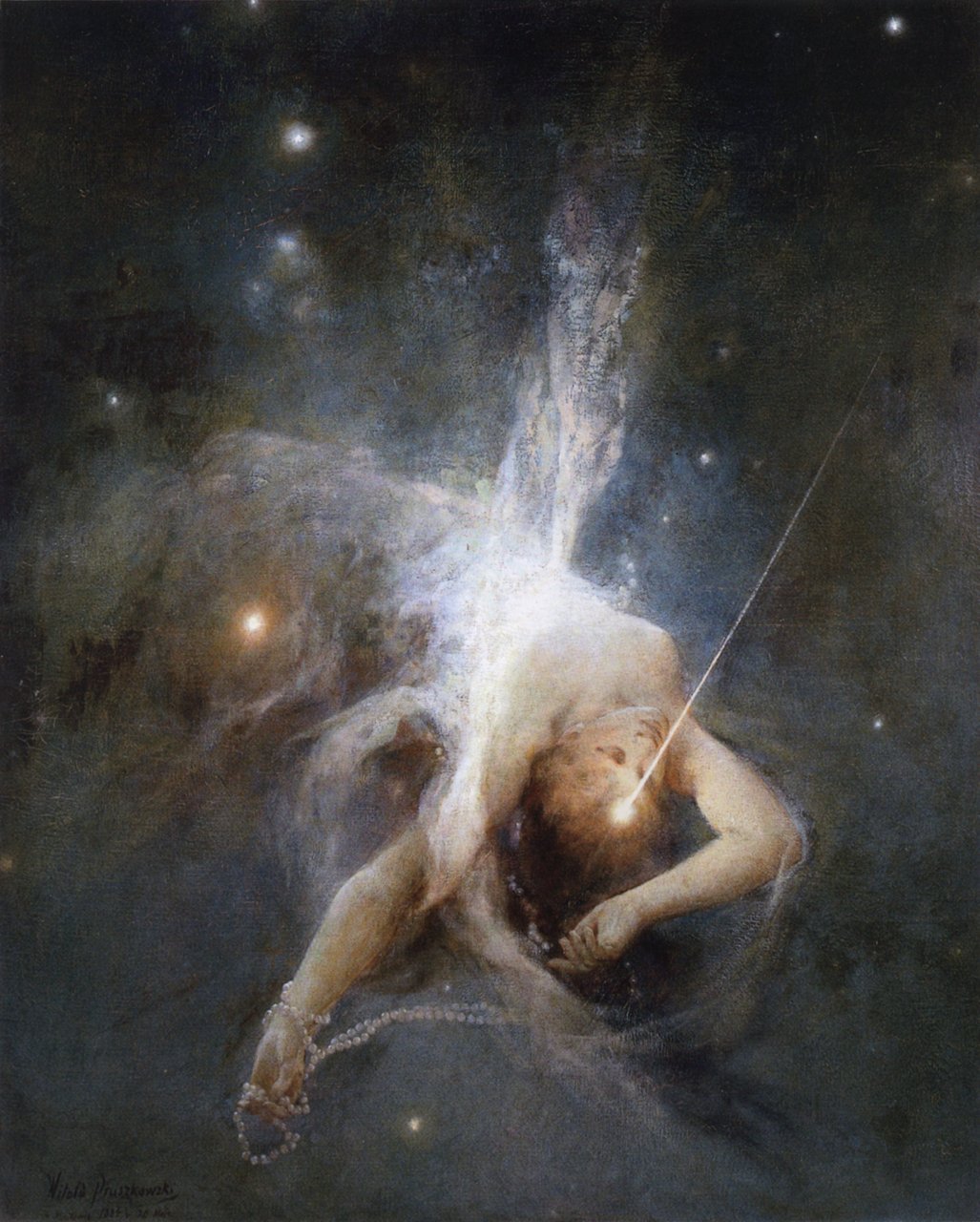It was used for the beautiful title heroine of a 1929 silent film, a Greek melodrama inspired by the Hollywood blockbuster Ramona (1928). Set in a remote mountain village sometime in the 19th century, it tells the story of an orphan girl smitten by her adoptive brother (Thymios) but made to marry a rich shepherd instead; in desperation she runs away, telling herself that she’ll “marry the sky & the stars & the darkness.” When news of her disappearance reaches her foster father his heart is softened, & eventually he & his son retrieve Astero, traumatized & incoherent, from a mountain cave; soon afterward Thymios sings a folksong that returns Astero to her senses & the young sweethearts are wed.
This “foustanella classic” was remade 30 years later with screen icon Aliki Vougiouklaki in the title role. The 1959 version of Astero (French: Astéro) was hugely successful.
 |
| Aliki Vougiouklaki as a lovelorn Astero, 1959 |
Naturally it is also a close relative of the mythology names Asteria (used by Edmund Spenser in the anglicized form Astery (“AS-tər-ee”) for a nymph turned into a butterfly in his 1591 poem Muiopotmus; or, the Fate of the Butterfly), Astraea (which Aphra Behn adopted as a pen name; I like the French Astrée) & Astris (Greek: Αστρης; belonging to a star-nymph), as well as the modern English coinages Astra & (botanical) Aster (& its Hebrew form Astera).
Potential nicknames for this strong ‘ends-in-O’ choice include Astroula (Greek: Αστρούλα; pron. “ah-STROO-lah”), Asta & Astaire (kidding).

No comments:
Post a Comment